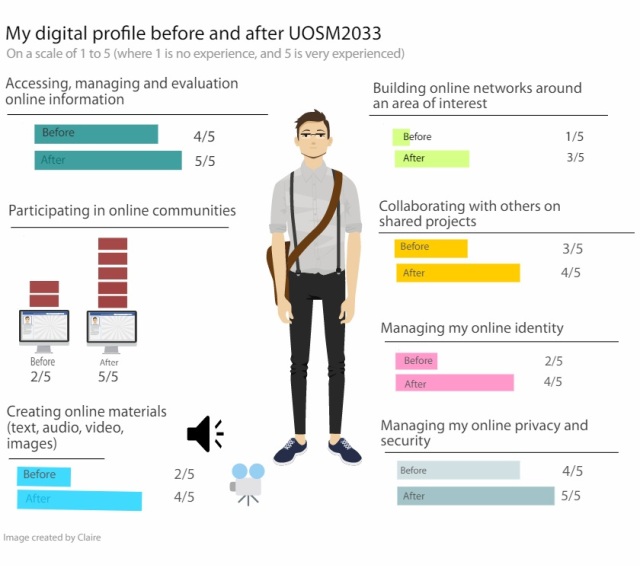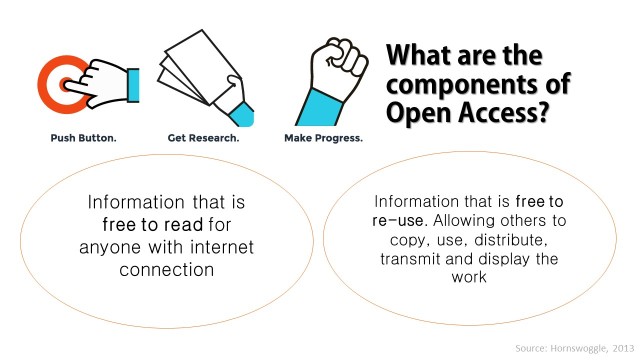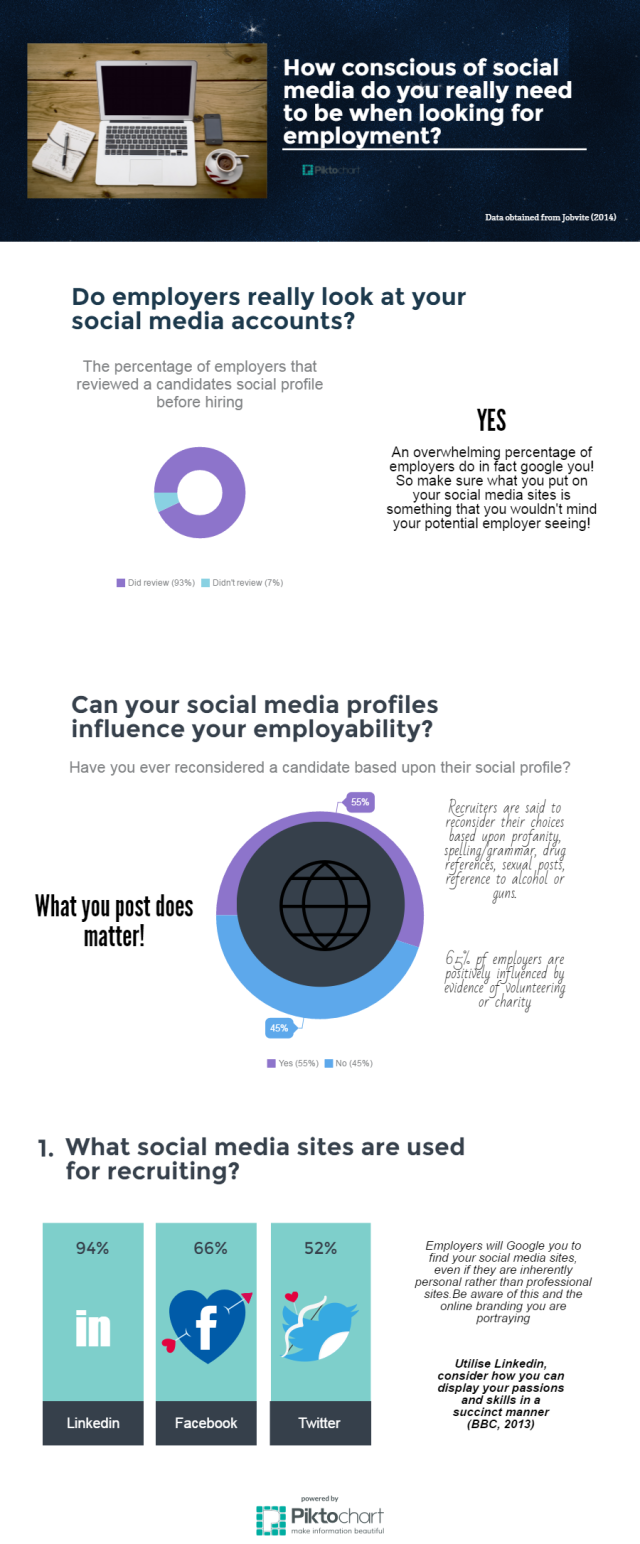
(Image created by me)
This module was like no other module I had done before, and quite honestly I had no idea what to expect. Whatever I expected however, was surpassed by miles. I have gained so much new knowledge through this module, and really built upon my digital skills. Most importantly, it has been a learning experience that I have thoroughly enjoyed. I had never blogged before October, and here I am now with a working blog only months later!
This module is of so much importance because the Internet is all around us, and is constantly changing and adapting – something that we use so often, should be studied and understood.
What have I gained?
At the beginning of the module I filled in a self test, ranking my digital skills on a scale of 1 to 5, based upon 7 categories. I then went back to this at the end of the module, and ranked how I had improved. My results showed improvements in every category, as displayed in the graphic below.

(Image created by me)
I had considered myself to be a ‘digital resident’ before this module, therefore wasn’t expecting much change, however was thrilled to see how much difference there was in mere months.
Going from the first topic where I struggled getting my post to show up on the module wordpress, to now where I have received praise from my lecturers for my posts, shows how I have improved throughout the module.

(Source: Twitter)
The PowerPoint presentation below further elaborates on what I have learnt within this module, and the skills I have gained.
(Powerpoint created by me)
How has my digital presence changed?
Living in the digital age requires a whole new range of skills and comes with its benefits, but also hindrances. Undertaking this module really reminded of the complications associated with the web. It highlighted how useful the Internet can be in terms of sharing knowledge, but also the issues that come with the ease of sharing in the digital age.
One particular issue that I found of importance during this module was the reviewing of my online presence and identity, displayed through my social media accounts. Particularly in a time of finding employment, this is extremely key. The video below shows the changes I have made to my profiles throughout this module.
(Video created by me)
The skills that I have gained throughout this module are skills that benefit me in all realms of life. I’d like to thank the lecturers and other students who commented on my blogs, for helping me improve and create an overall positive experience with the module.
What’s in store for the future?
I intend to continue working on my Linkedin profile, to further improve my profile and engage with others to build my online networks. I will strive to be less passive online, and contribute in online communities. I will also continue to blog and create new forms of media, as it is something I thoroughly enjoyed.
Word count: 500
References:
- BBC News. 2013, Job hunting: How to promote yourself online, [Online], Available: http://www.bbc.co.uk/news/business-25217962 [accessed 2016, November 7].
- IE University, 2014, Be found, and then be great!, Online, Available: https://www.youtube.com/watch?v=XR_WPzzx86o [accessed 2016, November 10].
- Landers, R. N. and Schmidt, G. B. 2016, Social Media in Employee Selection and Recruitment, Online, Available: https://books.google.co.uk/books?id=YfIgDAAAQBAJ&pg=PA167&lpg=PA167&dq=authentic+online+professional+profiles&source=bl&ots=1kMMxw5Ab_&sig=isSBNTJxzXzprB_9Un-OAZAZY3U&hl=en&sa=X&ved=0ahUKEwjsjsymu57QAhWqJcAKHaUUDeA4ChDoAQgaMAA#v=onepage&q=authentic%20online%20professional%20profiles&f=false [accessed 2016, November 10].
- The Employable, How blogging can get you a job, [Online], Available: http://www.theemployable.com/index.php/2014/10/28/blogging-can-help-get-job/ [accessed 2016, November 7].











 Topic two discussed the concept of multiple identities online. This is a topic of interest for me particularly now that I am job searching and am more aware of the identity in which I am portraying online. Something which I had expressed in my blog was the issue of needing to stay professional even on personal accounts. Emma’s comment highlighted the question of whether everyone needs to do this, or whether we as students are more aware. This was thought provoking as I reinforced the idea of multiple identities having different implications on different groups of people, leaving some more aware of their social presence than others.
Topic two discussed the concept of multiple identities online. This is a topic of interest for me particularly now that I am job searching and am more aware of the identity in which I am portraying online. Something which I had expressed in my blog was the issue of needing to stay professional even on personal accounts. Emma’s comment highlighted the question of whether everyone needs to do this, or whether we as students are more aware. This was thought provoking as I reinforced the idea of multiple identities having different implications on different groups of people, leaving some more aware of their social presence than others.
